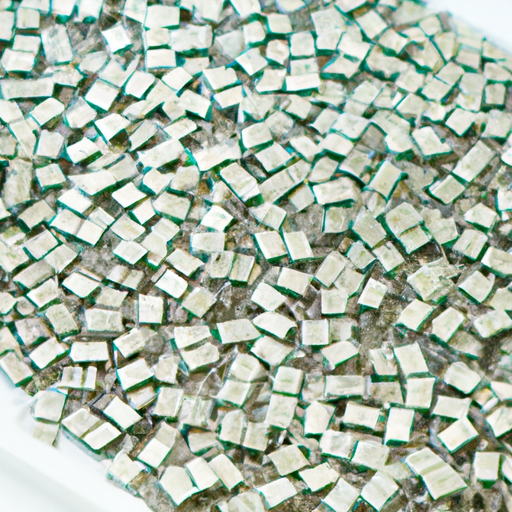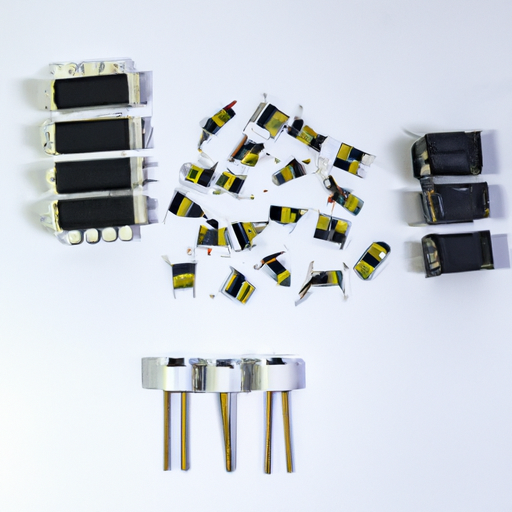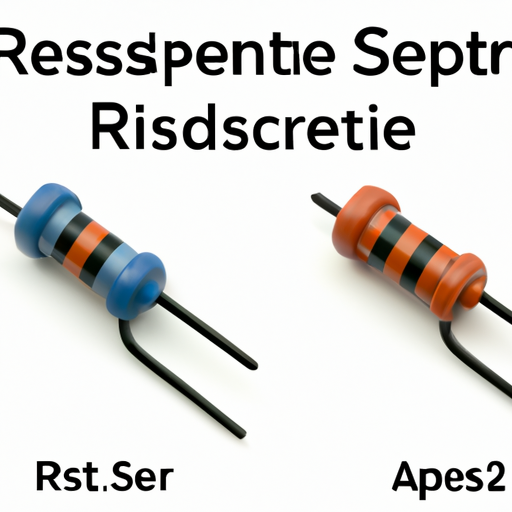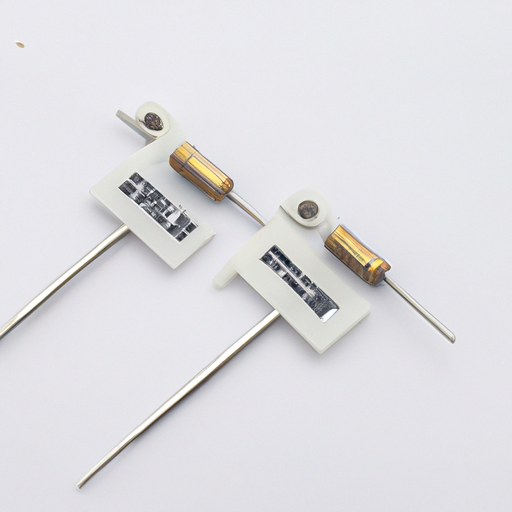What Kind of Products Does the Resistor Factory Make?
I. Introduction
Resistors are fundamental components in electronic circuits, serving the crucial role of controlling the flow of electric current. By providing resistance, they help to manage voltage levels, protect sensitive components, and ensure the proper functioning of devices. The resistor manufacturing industry is a vital segment of the electronics sector, producing a wide array of resistor types to meet the diverse needs of various applications. In this blog post, we will explore the different types of products made by resistor factories, the manufacturing processes involved, their applications, innovations in technology, and the challenges faced by the industry.
II. Types of Resistors
Resistors come in various forms, each designed for specific applications and performance requirements. The primary categories of resistors include fixed resistors, variable resistors, and specialty resistors.
A. Fixed Resistors
Fixed resistors are the most common type, providing a constant resistance value. They are widely used in electronic circuits and come in several subtypes:
1. **Carbon Composition Resistors**: Made from a mixture of carbon and a binding material, these resistors are known for their high energy absorption and ability to withstand high temperatures. However, they have a relatively high tolerance and are less stable over time.
2. **Carbon Film Resistors**: These resistors are created by depositing a thin layer of carbon on a ceramic substrate. They offer better stability and lower noise compared to carbon composition resistors, making them suitable for precision applications.
3. **Metal Film Resistors**: Similar to carbon film resistors, metal film resistors use a thin layer of metal for resistance. They provide excellent accuracy, low temperature coefficient, and high stability, making them ideal for high-precision applications.
4. **Wirewound Resistors**: Constructed by winding a metal wire around a ceramic or fiberglass core, wirewound resistors can handle high power levels and are often used in applications requiring high precision and stability.
B. Variable Resistors
Variable resistors allow for adjustable resistance values, making them versatile components in electronic circuits.
1. **Potentiometers**: These are commonly used to adjust voltage levels in circuits, such as volume controls in audio equipment. They consist of a resistive element and a movable wiper that changes the resistance as it is adjusted.
2. **Rheostats**: Similar to potentiometers, rheostats are used to control current flow in a circuit. They typically have two terminals and are designed to handle higher currents, making them suitable for applications like dimming lights or controlling motors.
C. Specialty Resistors
Specialty resistors are designed for specific applications that require unique characteristics.
1. **Precision Resistors**: These resistors have very tight tolerance levels and are used in applications where accuracy is critical, such as in measurement and calibration equipment.
2. **High-Voltage Resistors**: Designed to withstand high voltage levels, these resistors are used in power supplies and other high-voltage applications.
3. **High-Power Resistors**: Capable of dissipating significant amounts of power, high-power resistors are used in applications like power amplifiers and motor control circuits.
4. **Surface Mount Resistors**: These resistors are designed for surface mount technology (SMT) and are commonly used in modern electronic devices due to their compact size and ease of integration into circuit boards.
III. Manufacturing Processes
The production of resistors involves several key processes, from material selection to quality control.
A. Material Selection
The choice of materials is critical in resistor manufacturing. Conductive materials, such as carbon, metal, or metal oxides, are selected based on the desired resistance characteristics. Insulating materials, such as ceramics or plastics, are used to encase the resistive element and prevent electrical leakage.
B. Production Techniques
1. **Film Deposition**: For carbon and metal film resistors, a thin layer of the resistive material is deposited onto a substrate using techniques like sputtering or chemical vapor deposition. This process allows for precise control over the resistance value.
2. **Wire Winding**: In wirewound resistors, a metal wire is wound around a core to create the desired resistance. The number of turns and the wire gauge determine the final resistance value.
3. **Encapsulation**: After the resistive element is created, it is encapsulated in a protective material to ensure durability and reliability. This step is crucial for protecting the resistor from environmental factors.
C. Quality Control Measures
Quality control is essential in resistor manufacturing to ensure that products meet industry standards. Testing and validation processes are implemented to check for accuracy, stability, and performance. Compliance with industry standards, such as ISO and RoHS, is also a critical aspect of the manufacturing process.
IV. Applications of Resistors
Resistors are used in a wide range of applications across various industries, highlighting their importance in modern technology.
A. Consumer Electronics
In consumer electronics, resistors are found in devices such as smartphones and laptops. They help regulate power, control signal levels, and protect sensitive components from damage.
B. Industrial Equipment
Resistors play a vital role in industrial equipment, including automation systems and robotics. They are used in control circuits, feedback systems, and power management applications.
C. Automotive Industry
The automotive industry relies on resistors for various applications, including electric vehicles and safety systems. Resistors are used in battery management systems, sensor circuits, and electronic control units to ensure optimal performance and safety.
D. Medical Devices
In the medical field, resistors are essential components in diagnostic equipment and monitoring devices. They help ensure accurate readings and reliable operation in critical applications, such as patient monitoring systems and imaging equipment.
V. Innovations in Resistor Technology
The resistor manufacturing industry is continually evolving, with innovations aimed at improving performance and sustainability.
A. Development of Smart Resistors
Smart resistors are emerging as a new category of resistive components that can adapt their resistance based on environmental conditions or user input. These devices can enhance the functionality of electronic systems, enabling more efficient power management and improved performance.
B. Advances in Miniaturization
As electronic devices become smaller and more compact, the demand for miniaturized components, including resistors, has increased. Advances in manufacturing techniques have allowed for the production of smaller, more efficient resistors that can fit into tight spaces without compromising performance.
C. Eco-Friendly Manufacturing Practices
With growing concerns about environmental sustainability, resistor manufacturers are adopting eco-friendly practices. This includes using recyclable materials, reducing waste during production, and implementing energy-efficient manufacturing processes.
VI. Challenges in the Resistor Manufacturing Industry
Despite the advancements and innovations, the resistor manufacturing industry faces several challenges.
A. Supply Chain Issues
Global supply chain disruptions can impact the availability of raw materials and components needed for resistor production. Manufacturers must navigate these challenges to maintain consistent production levels and meet customer demands.
B. Competition and Market Dynamics
The resistor market is highly competitive, with numerous manufacturers vying for market share. Companies must continuously innovate and improve their products to stay ahead of the competition.
C. Technological Advancements and Adaptation
As technology evolves, resistor manufacturers must adapt to new trends and requirements. This includes keeping up with advancements in electronics, such as the rise of smart devices and the Internet of Things (IoT), which demand more sophisticated resistor solutions.
VII. Conclusion
In summary, resistors are essential components in electronic circuits, playing a critical role in controlling current and voltage levels. The resistor manufacturing industry produces a wide variety of products, including fixed, variable, and specialty resistors, each designed for specific applications. As technology continues to advance, the industry faces both challenges and opportunities, with innovations in smart resistors, miniaturization, and eco-friendly practices shaping the future of resistor manufacturing. Understanding the importance of resistors and their applications is crucial for appreciating their role in technology and innovation. As we look ahead, the resistor manufacturing industry is poised for growth, driven by the ever-increasing demand for electronic devices and systems.












